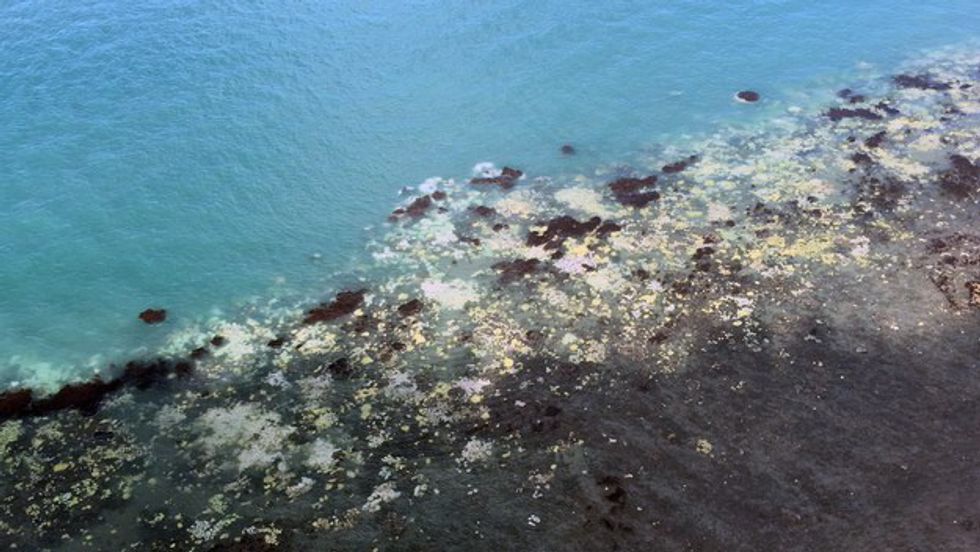Lately, it seems the only things on the news consist of celebrity gossip or the political race. While some of those aspects are important and should be on the news, there are other more pressing issues that need attention in order for others to take necessary action to help. For example, the beloved Great Barrier Reef. One thing that's always been on my bucket list is visiting the Great Barrier Reef. I would love to see all the unique sea life, the beautiful colors, and doing it all off the coast of Australia makes it sound even better. But with the way we are treating this beautiful aquatic zone, it seems in the future we won't have this amazing reef to admire. At least, not a healthy one.
Earlier this year, a coral bleaching event took place at the reef. According to Terry Hughes, a professor and convener at Australia's National Coral Bleaching Taskforce, coral bleaching, "occurs when abnormal water conditions, such as rising temperatures, expel tiny photosynthetic algae called zooxanthellae, turning the coral white." The picture below shows what this looks like.
Now, what's wrong with coral bleaching? Well, it puts the coral under a lot of stress which leaves it more susceptible to diseases. This threatens the entire Great Barrier Reef since the majority of it consists of coral. This doesn't only affect the coral, though, it affects almost all of the other life at the reef. Researchers noticed specific fish species, such as the parrot fish, that feed off of coral no longer have a source of food. So coral bleaching doesn't just harm the actual coral, but all of the aquatic life around it.
As stated before, one of the biggest causes of coral bleaching is a rise in temperatures. And this rise in temperatures is caused by climate change, or global warming, something we humans directly affect.
As we can see, global warming has huge consequences to many things in life. Most people associate global warming with the large, more well-known issues like sea levels rising, polar ice caps melting, etc. Most people know and understand these effects, so it is important to bring light to ones that aren't as well-known.
In order to keep the Great Barrier Reef alive and well, we as a nation need to take necessary action to reduce climate change, bring more awareness to these hidden and danger-inducing events, and simply be more conscious of the ways we are harming the environment.




















